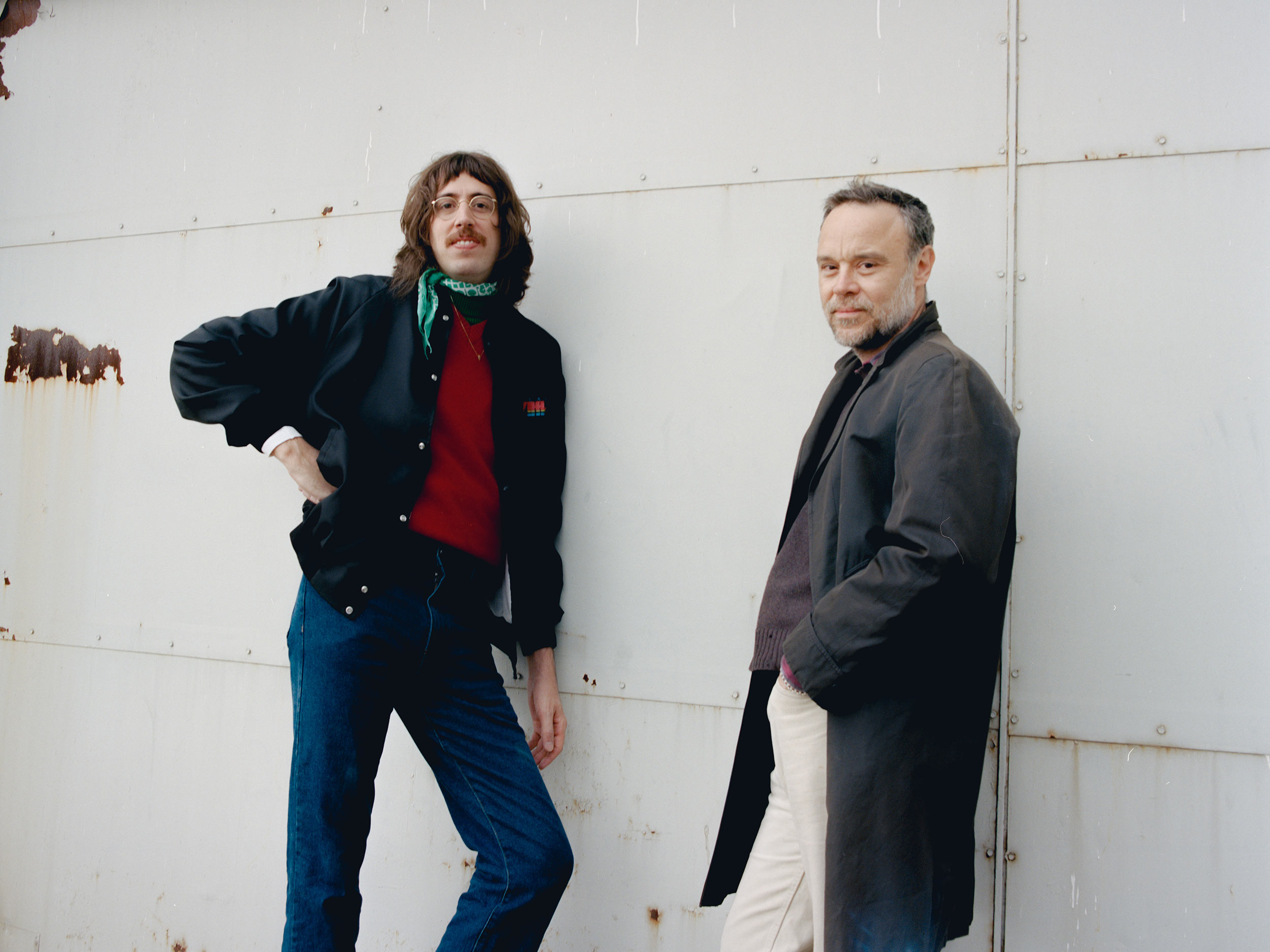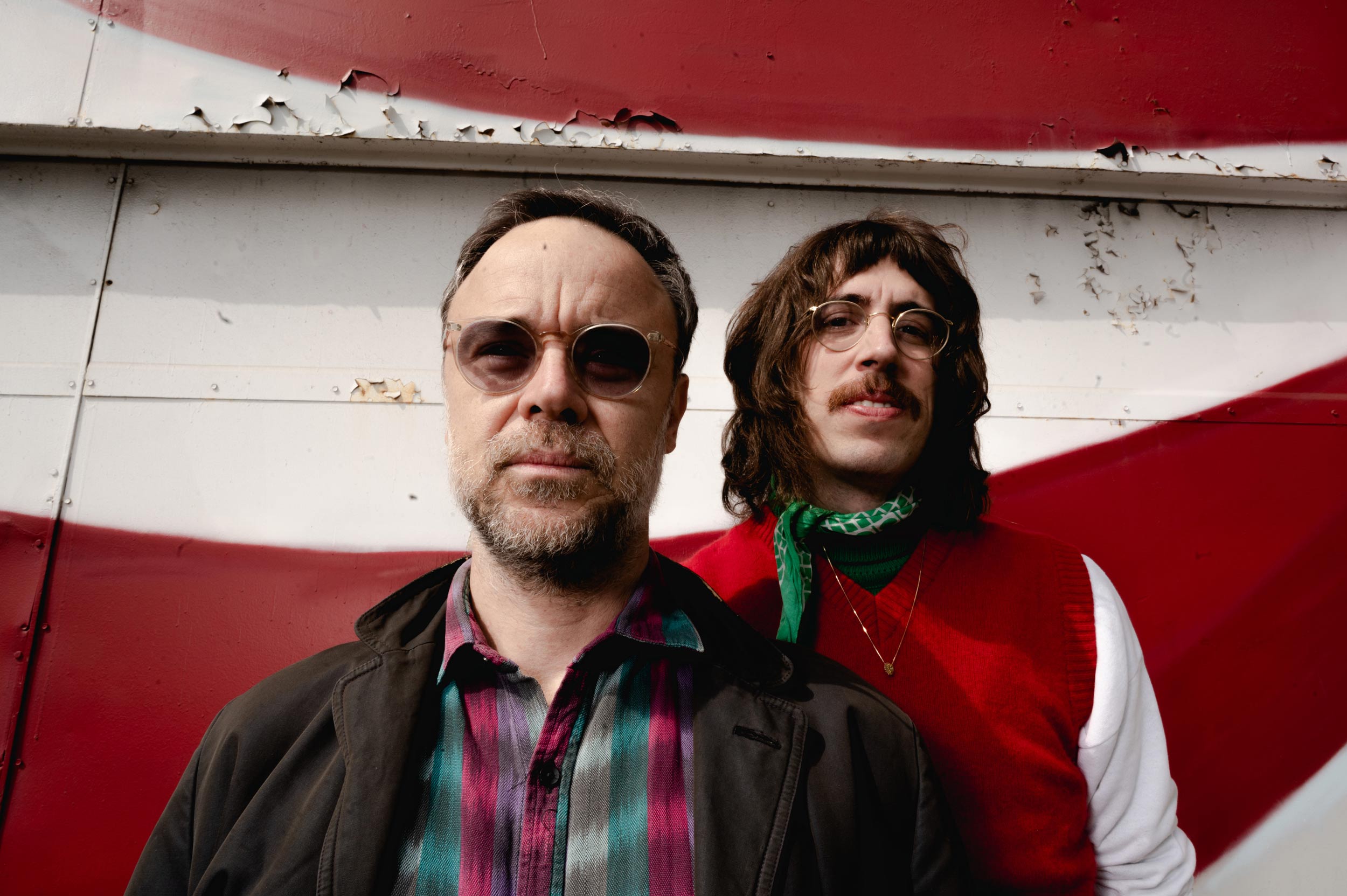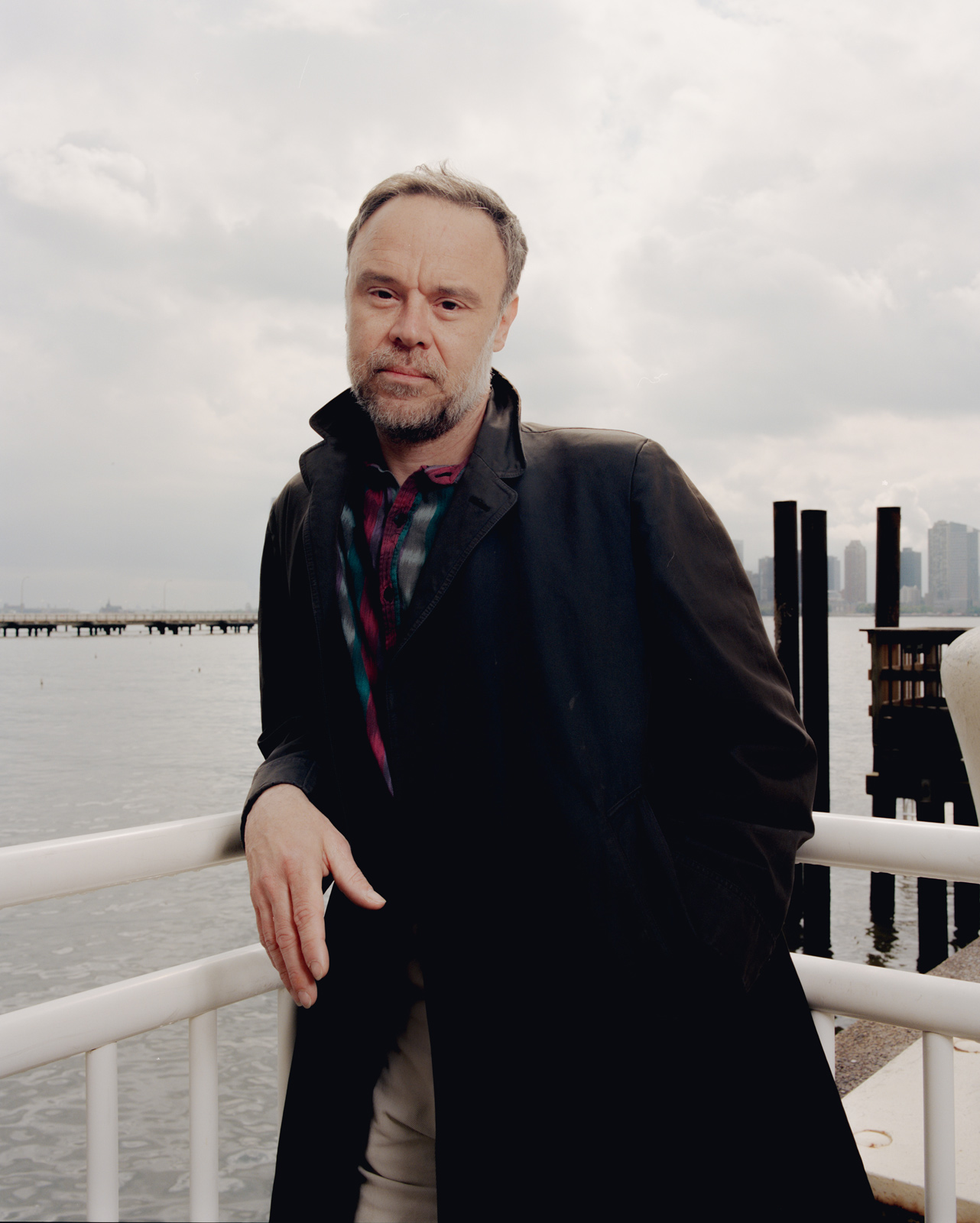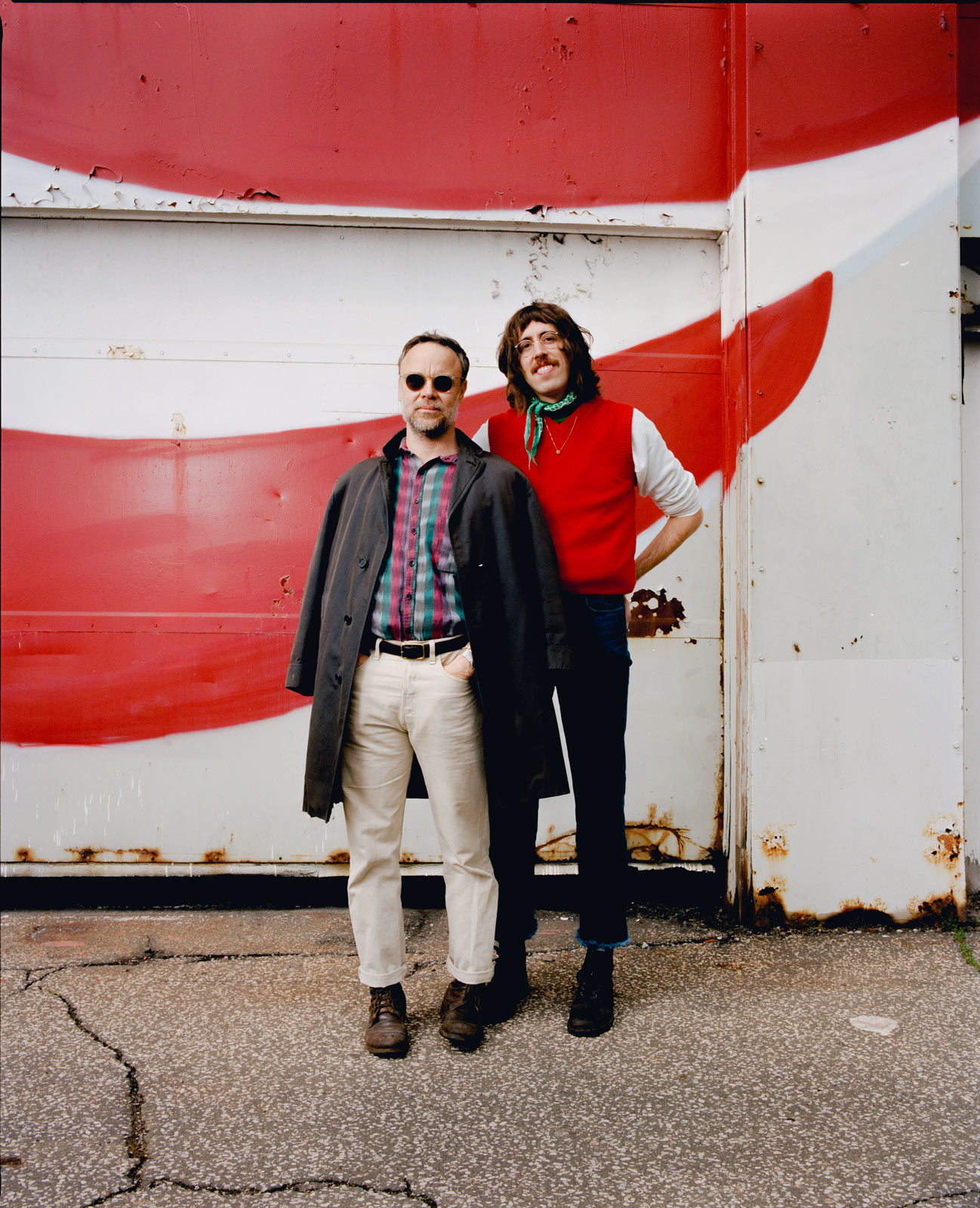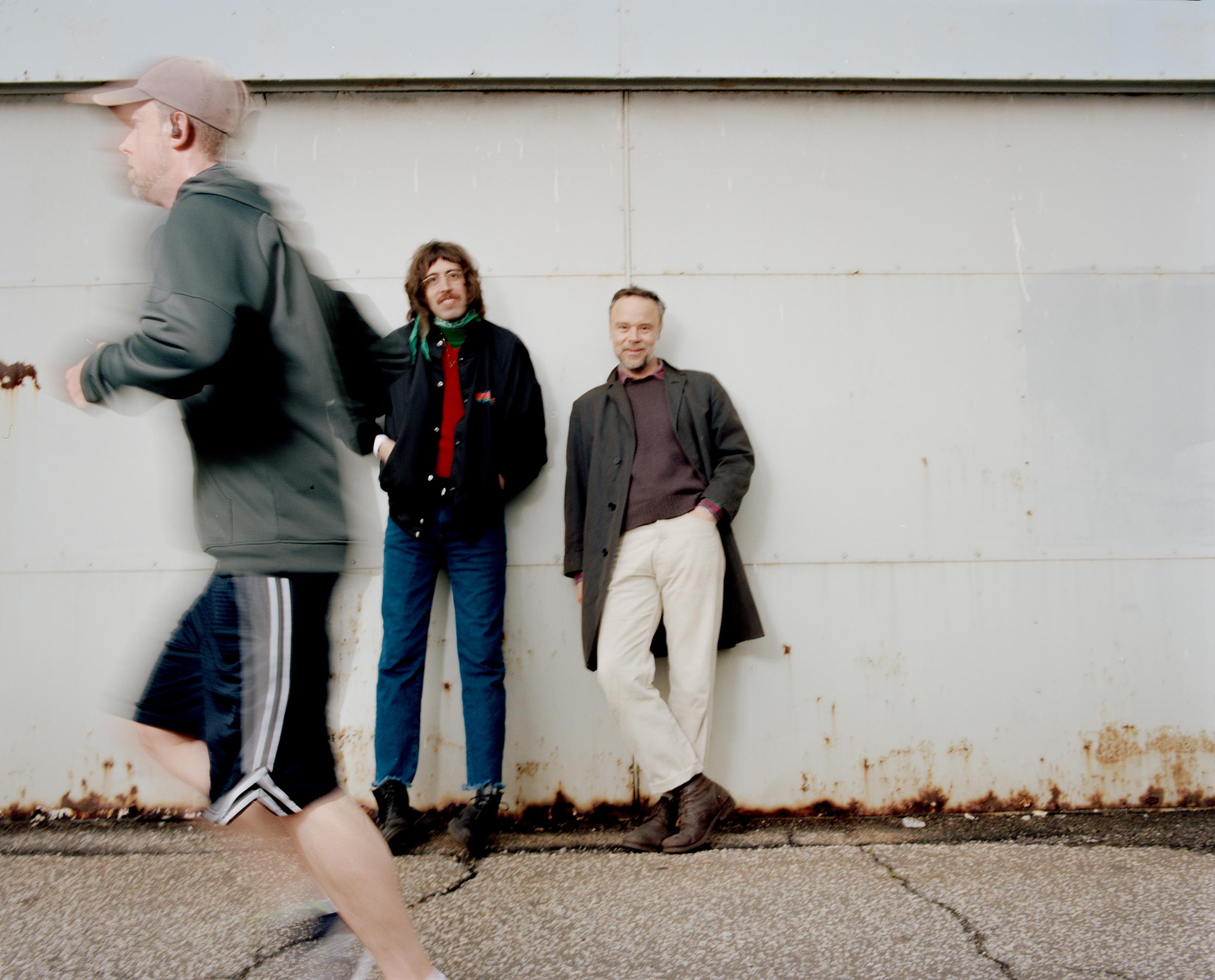In the throes of touring, the musicians reflect upon recent collaborations, and affirm that any wishes for their continuation are likely to come true
Tim Bernardes and Rodrigo Amarante are illuminated by the sight of one another. Their obvious—and oft verbalized—mutual affection is built from satisfaction in its simplest form: the joy of spending time together. The Brazilian artists recently collaborated on reimaginations of two songs, Bernardes’s “Leve” and Amarante’s “Tao.” Captured on camera in the former’s living room, the recordings were really the product of chance, born from a brief opportunity where the two found themselves in the same city—an excuse for the friends to share time and song.
Bernardes and Amarante are perfect emblems of the Brazilian spirit, their music grounded by the ebullience of making it. Their shared prioritization of finding pleasure in the process hasn’t inhibited either in the technical sense of success. Bernardes has collaborated with the likes of David Byrne, Tom Zé, Gal Costa, Devendra Banhart, and Shintaro Sakamoto; earned a Grammy nomination; and cemented himself as a mainstay in a new generation of Brazilian musicians—again proven in his latest album, Mil Coisas Invisíveis. Amarante’s resume is similarly weighted: His theme tune for Narcos, “Tuyo,” is embedded in the contemporary cultural consciousnesses; he recently performed with the LA Philharmonic; and he’s found critical acclaim across his first musical projects, Los Hermanos and Little Joy, as well as with his solo work, spanning a plethora of genres and themes.
In the throes of touring, Bernardes and Amarante meet to reflect upon their recent collaboration, and affirm that any wishes for its continuation are likely to come true.
Megan Hullander: You’re obviously fans of each other’s work—but I feel like being a fan of someone’s work is different from wanting to collaborate with them. What felt like you were suited to make music together?
Rodrigo Amarante: This collaboration was precisely that: liking each other’s music and liking each other. It was very loose, very free. Tim gave me a bit of his world on my song, and I gave him a bit of mine on his.
Tim Bernardes: We were really just spending an afternoon together. When you’re doing an album, you tend to feel more serious. I liked this [because] it was more about the joy of doing it.
Megan: I think that sense of joy is something that’s associated with Brazilian culture. I’m curious about how Brazil—aside from the obvious musical influences—permeates into your creative processes.
Rodrigo: With Americans, your sense of worth comes from working hard, and, in a way, life becomes about that. I think a very good indicator is that it’s positive to respond to, How are you? with, I’m so busy. To us, that’s embarrassing. If you say, I’m busy, it’s like, Oh, I’m sorry.
In music, our sense of joy comes from playing. Rather than, We’ve got to do this for our careers, it’s, We’re gonna capture this joy.
Tim: In Brazil, we have this openness—and it gets to the music because it comes from intention. The direction of your arrow just goes a different way. I have moments recording sometimes, like with this last album, and you can’t escape that some things are planned. So I was dying to do unplanned things like [these recordings]. Because that’s why we do music.
Megan: Why is it easier to find that joy in collaboration than it might be in your solo work?
Tim: I like collaborations because they kind of feel like vacation. When I’m worried about creating my own sound, it feels like I’m investigating myself. When I’m collaborating, I can be at ease; I don’t have to justify anything. I like the discovery process of doing an album—I love it—but it feels lighter to collaborate. You don’t have to have some big conceptual thing.
Rodrigo: When you’re making a record, it’s like there’s a mirror in front of you the whole time. When there’s someone else in the room, the mirror disappears.
Tim: It almost feels like you can be more yourself when you’re collaborating, because you’re not using part of your brain to try to be yourself, to be faithful to yourself—you’re just being.
Megan: Would you ever work in a more structured capacity for an album together, or would that ruin the pleasures of spontaneity?
Tim: We haven’t planned it, but I’m down.
Rodrigo: I would like to try to take it to the next level and write something together. Tim and I have talked about music today and the feelings we share about songwriting—like, what establishes a sound? Sometimes I use this exercise: Whatever it is that I’m writing, I put myself in the place of a kid. Children are superhumans. They can learn anything so fast, and they’re so open. With this in mind, it becomes really sophisticated, because you don’t have all the restraints of adulthood or what’s proper. To play is to accept, to include mistakes or errors. There is no error. Making music with you, Tim, I feel like that would be the spirit of it.
Tim: We have very different worlds, but we understand each other’s languages.
Rodrigo: Maybe we should do something with a time restraint. So many great records happen that way. With my first band in Brazil, Los Hermanos, I wasn’t really a songwriter—or, I wasn’t pretending to be a songwriter yet. But we would go to this house in the countryside, and in two weeks, we had to write the record. If I had a year or two weeks, the same amount of work would probably get done. But that [time constraint] creates an environment where you have to believe in instinct.
Tim: It’s like recording to tape—you don’t have endless options.
Rodrigo: Yeah, not going back to edit and rethink brings a certain energy. If you scrutinize it, you will find mistakes: I started early here, or I’m out of tune on this. But the energy is what makes it so vibrant and warm. Okay, we’re getting our rules set.
Tim: Sorry, we’re going to use this interview to plan an album. I’m going in October, probably too late, but I can try to visit you.
Rodrigo: We could even try this: I record four tracks and leave some space at random parts, and I’ll send it to you, and you send me another tape with your four tracks. And then, we see what happens. We have to be together, we have to wait until the time is right, but these things, you have to jump on them.
Tim: Oh, yes.
“It almost feels like you can be more yourself when you’re collaborating, because you’re not using part of your brain to try to be yourself, to be faithful to yourself—you’re just being.”
Megan: That instinct you mentioned, I wonder how it functions in knowing when something feels final, like you can call a song complete.
Tim: If you had some idea that you wanted to get in there, then you feel it when you get there. But sometimes, if it’s more open, it’s just like, I like it. Next.
Rodrigo: I know when something’s there, but it’s an exercise always [in making] sure I’m not being precious. And these kinds of free attempts are great reminders of how letting go quicker is usually better.
One time, I had to write a song overnight. And when I went to bed, it was like, Oh my God, I hope that I remembered lines that I would have changed, and things I would have done. But I’m so glad I didn’t have time to change anything, because there’s an inconsistency that I like in the lyrics; I started with a certain idea and as the night went on, I abandoned it and became more free towards the end of the song. If I had more time, I’d probably polish it and would lose something that was there.
Tim: Mixing the album, for me, always gets to this point of, Could I mix a little more? But it’s almost like, if I die, and people would understand the album, then it’s good.
There’s also the feeling that you’re collaborating with chance. It’s interesting to see what happened in a song that is not exactly [purposeful]. Sometimes, you have something to say, and sometimes, the song tells you something.
Photography Assistant AJ Kyser.


